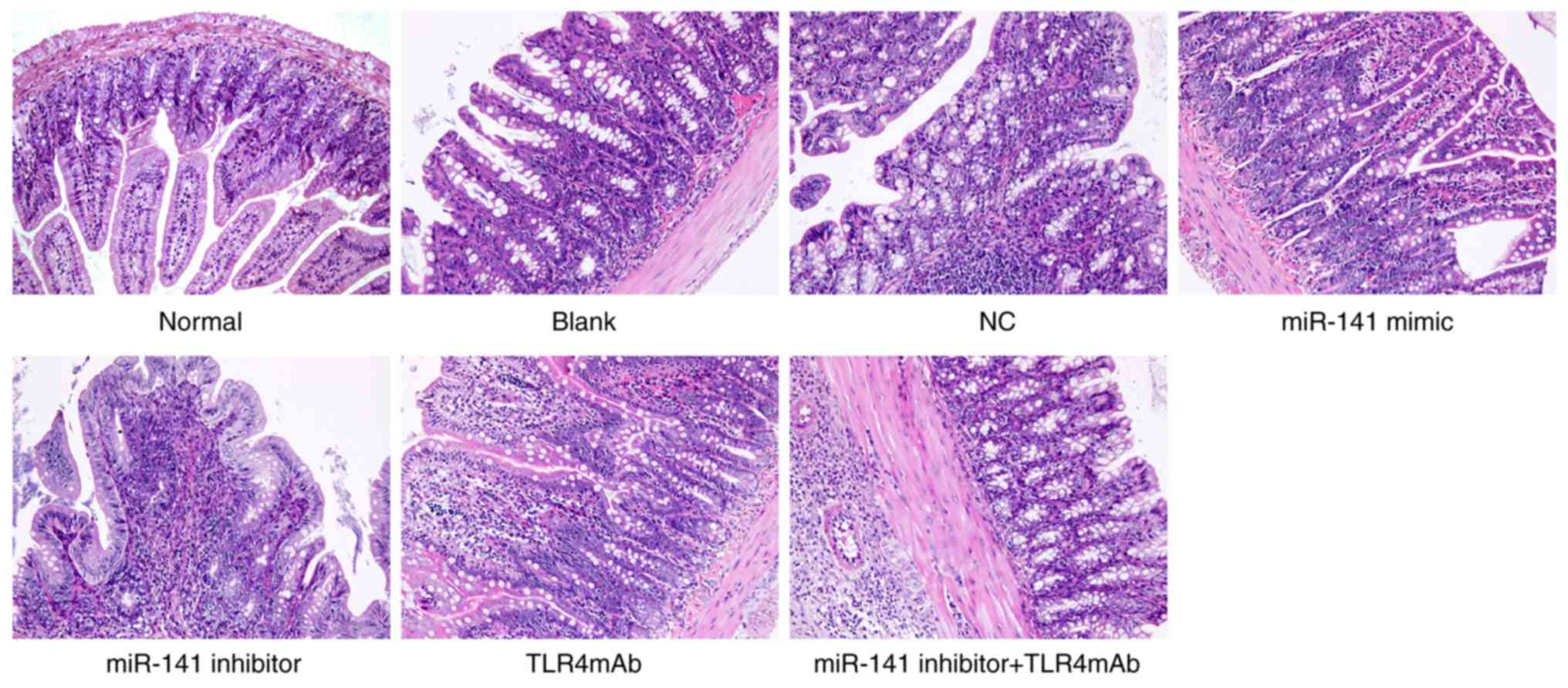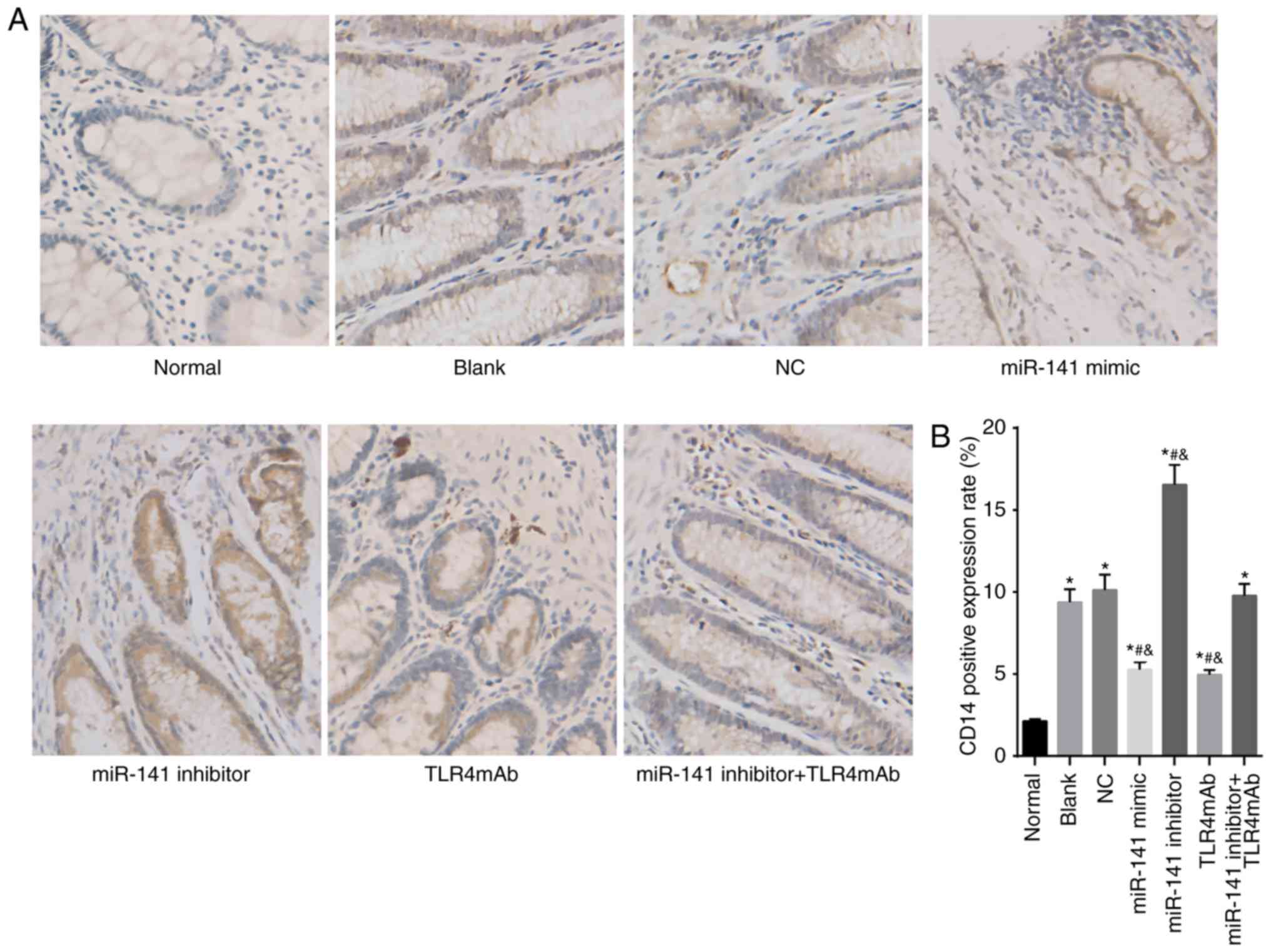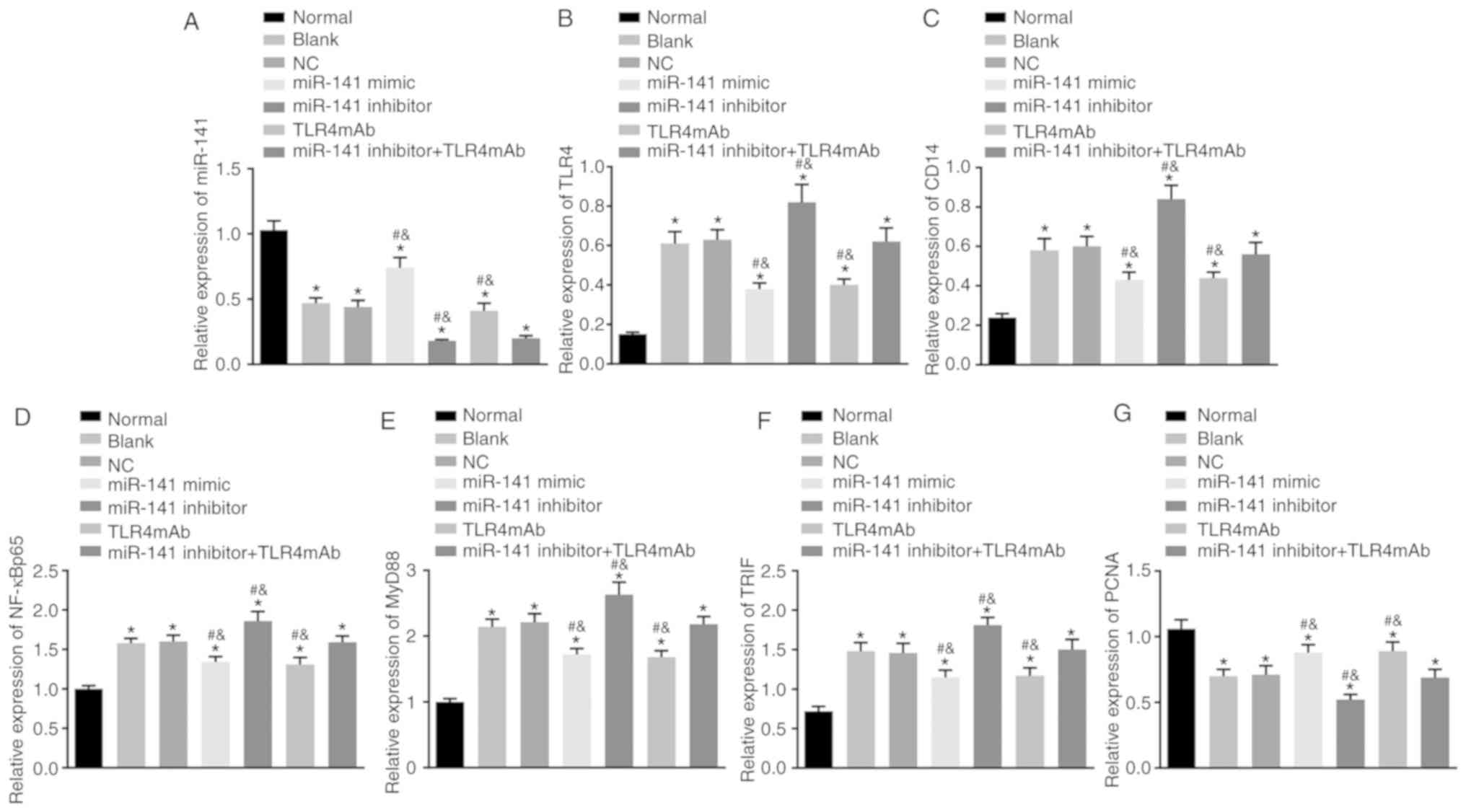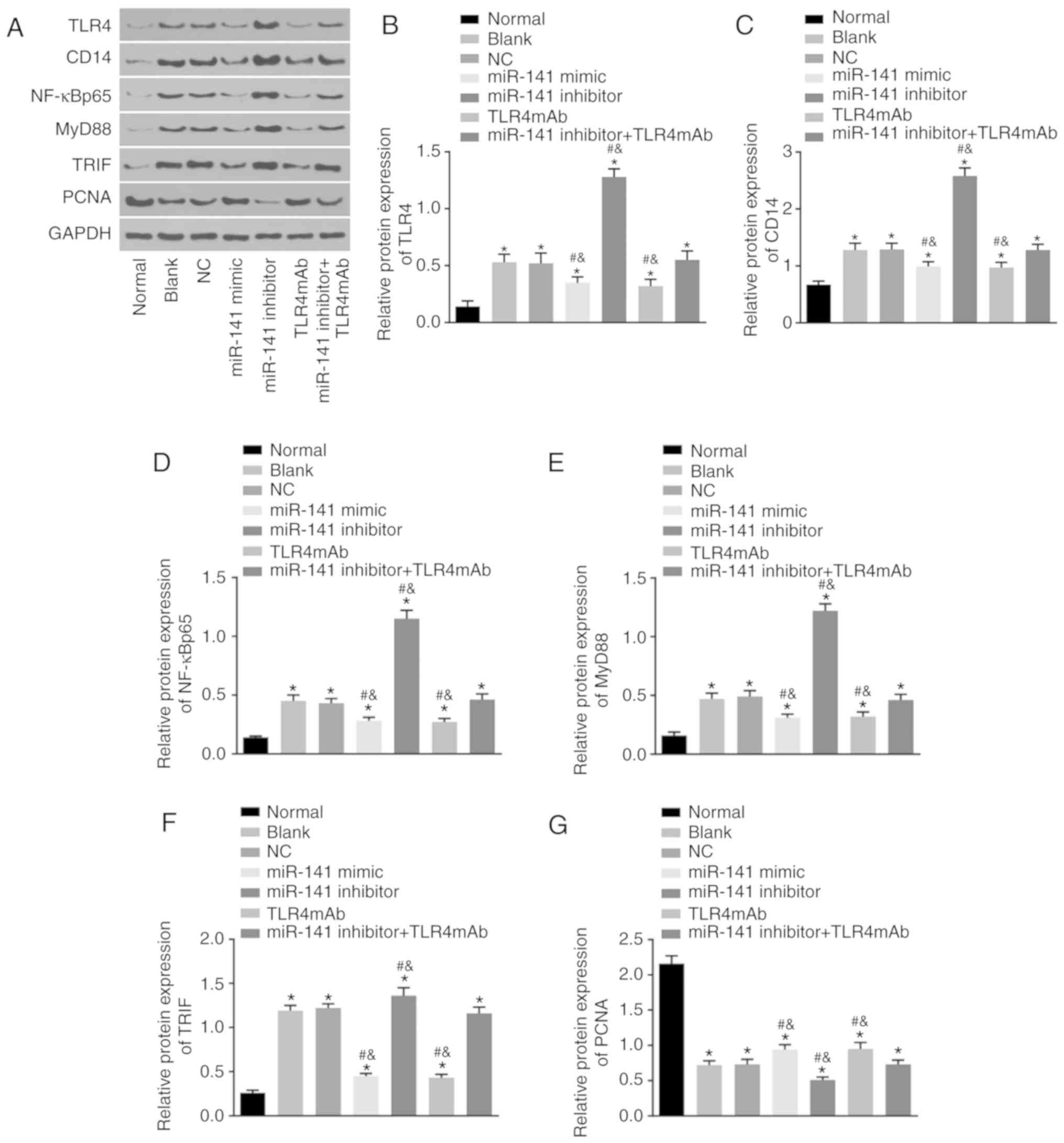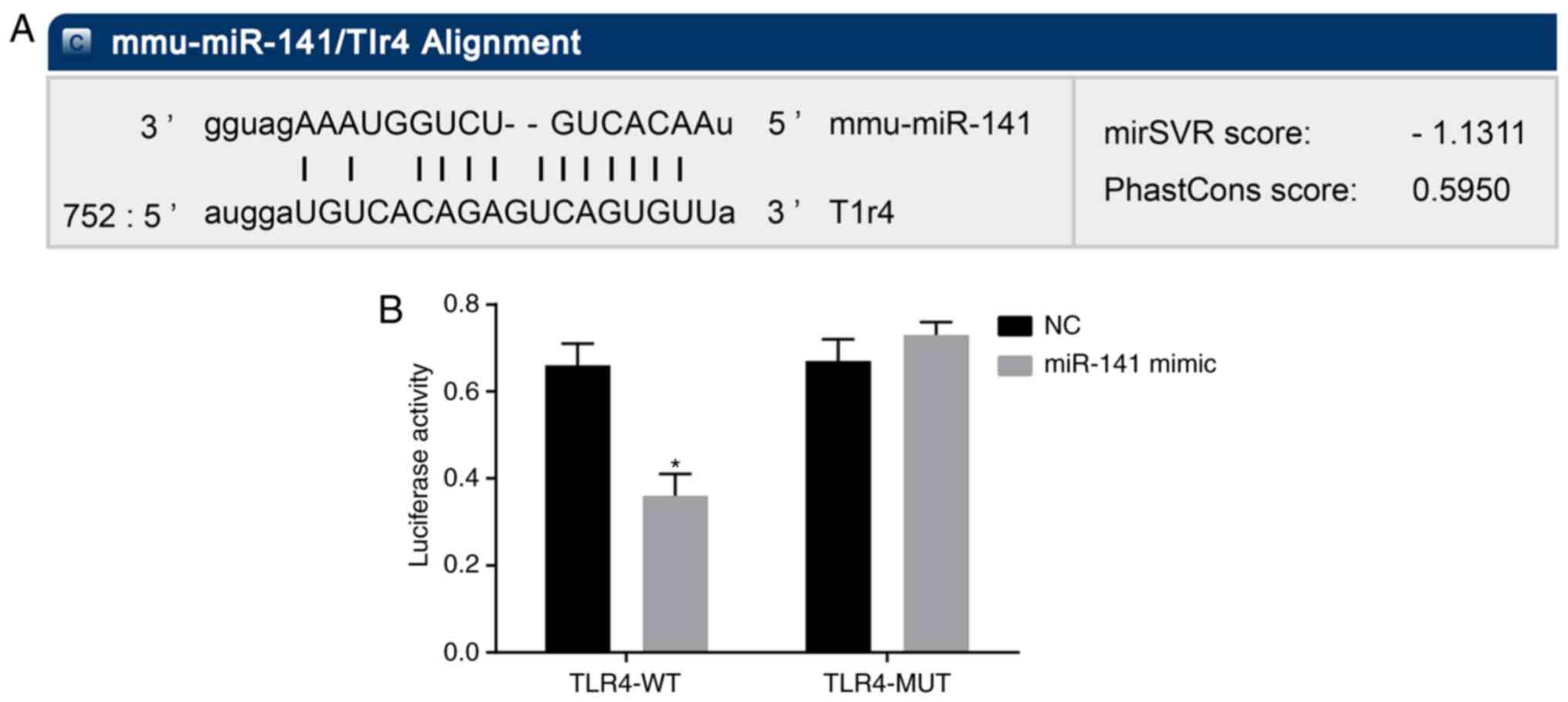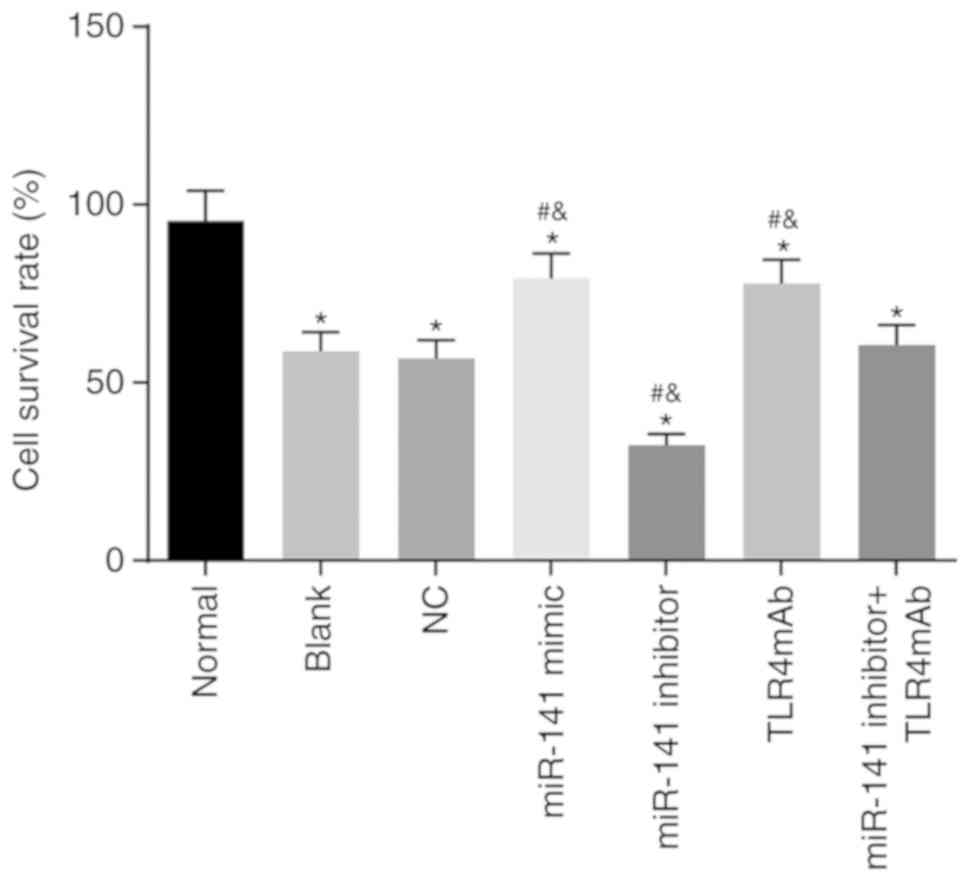|
1
|
Damgaard Sandahl T: Alcoholic hepatitis.
Dan Med J. 61:B47552014.PubMed/NCBI
|
|
2
|
Kendrick SF, O'Boyle G, Mann J, Zeybel M,
Palmer J, Jones DE and Day CP: Acetate, the key modulator of
inflammatory responses in acute alcoholic hepatitis. Hepatology.
51:1988–1997. 2010. View Article : Google Scholar : PubMed/NCBI
|
|
3
|
Chayanupatkul M and Liangpunsakul S:
Alcoholic hepatitis: A comprehensive review of pathogenesis and
treatment. World J Gastroenterol. 20:6279–6286. 2014. View Article : Google Scholar : PubMed/NCBI
|
|
4
|
Singal AK, Kamath PS, Gores GJ and Shah
VH: Alcoholic hepatitis: Current challenges and future directions.
Clin Gastroenterol Hepatol. 12:555–564; quiz e31-e32. 2014.
View Article : Google Scholar :
|
|
5
|
Raff E and Singal AK: Optimal management
of alcoholic hepatitis. Minerva Gastroenterol Dietol. 60:25–38.
2014.PubMed/NCBI
|
|
6
|
Torok NJ: Update on alcoholic hepatitis.
Biomolecules. 5:2978–2986. 2015. View Article : Google Scholar : PubMed/NCBI
|
|
7
|
Yan AW and Schnabl B: Bacterial
translocation and changes in the intestinal microbiome associated
with alcoholic liver disease. World J Hepatol. 4:110–118. 2012.
View Article : Google Scholar : PubMed/NCBI
|
|
8
|
Schnabl B and Brenner DA: Interactions
between the intestinal microbiome and liver diseases.
Gastroenterology. 146:1513–1524. 2014. View Article : Google Scholar : PubMed/NCBI
|
|
9
|
Rao R: Endotoxemia and gut barrier
dysfunction in alcoholic liver disease. Hepatology. 50:638–644.
2009. View Article : Google Scholar : PubMed/NCBI
|
|
10
|
McDaniel K, Herrera L, Zhou T, Francis H,
Han Y, Levine P, Lin E, Glaser S, Alpini G and Meng F: The
functional role of microRNAs in alcoholic liver injury. J Cell Mol
Med. 18:197–207. 2014. View Article : Google Scholar : PubMed/NCBI
|
|
11
|
Szabo G and Satishchandran A: MicroRNAs in
alcoholic liver disease. Semin Liver Dis. 35:36–42. 2015.
View Article : Google Scholar : PubMed/NCBI
|
|
12
|
Blaya D, Coll M, Rodrigo-Torres D,
Vila-Casadesús M, Altamirano J, Llopis M, Graupera I, Perea L,
Aguilar-Bravo B, Diaz A, et al: Integrative microRNA profiling in
alcoholic hepatitis reveals a role for microRNA-182 in liver injury
and inflammation. Gut. 65:1535–1545. 2016. View Article : Google Scholar : PubMed/NCBI
|
|
13
|
Bala S, Petrasek J, Mundkur S, Catalano D,
Levin I, Ward J, Alao H, Kodys K and Szabo G: Circulating microRNAs
in exosomes indicate hepatocyte injury and inflammation in
alcoholic, drug-induced, and inflammatory liver diseases.
Hepatology. 56:1946–1957. 2012. View Article : Google Scholar : PubMed/NCBI
|
|
14
|
Lucas K and Maes M: Role of the Toll Like
receptor (TLR) radical cycle in chronic inflammation: Possible
treatments targeting the TLR4 pathway. Mol Neurobiol. 48:190–204.
2013. View Article : Google Scholar : PubMed/NCBI
|
|
15
|
Zhou X, Ye F, Yin C, Zhuang Y, Yue G and
Zhang G: The interaction between MiR-141 and lncRNA-H19 in
regulating cell proliferation and migration in gastric cancer. Cell
Physiol Biochem. 36:1440–1452. 2015. View Article : Google Scholar : PubMed/NCBI
|
|
16
|
Xue J, Niu YF, Huang J, Peng G, Wang LX,
Yang YH and Li YQ: miR-141 suppresses the growth and metastasis of
HCC cells by targeting E2F3. Tumour Biol. 35:12103–12107. 2014.
View Article : Google Scholar : PubMed/NCBI
|
|
17
|
Huang XY, Huang ZL, Xu YH, Zheng Q, Chen
Z, Song W, Zhou J, Tang ZY and Huang XY: Comprehensive circular RNA
profiling reveals the regulatory role of the
circRNA-100338/miR-141-3p pathway in hepatitis B-related
hepatocellular carcinoma. Sci Rep. 7:54282017. View Article : Google Scholar : PubMed/NCBI
|
|
18
|
Cai M, Chen S and Hu W: MicroRNA-141 is
involved in ulcerative colitis pathogenesis via aiming at CXCL5. J
Interferon Cytokine Res. 37:415–420. 2017. View Article : Google Scholar : PubMed/NCBI
|
|
19
|
Lowe PP, Gyongyosi B, Satishchandran A,
Iracheta-Vellve A, Ambade A, Kodys K, Catalano D, Ward DV and Szabo
G: Alcohol-related changes in the intestinal microbiome influence
neutrophil infiltration, inflammation and steatosis in early
alcoholic hepatitis in mice. PLoS One. 12:e01745442017. View Article : Google Scholar : PubMed/NCBI
|
|
20
|
Geboes K, Riddell R, Ost A, Jensfelt B,
Persson T and Löfberg R: A reproducible grading scale for
histological assessment of inflammation in ulcerative colitis. Gut.
47:404–409. 2000. View Article : Google Scholar : PubMed/NCBI
|
|
21
|
Wang X, Sun L, Wang X, Kang H, Ma X, Wang
M, Lin S, Liu M, Dai C and Dai Z: Acidified bile acids enhance
tumor progression and telomerase activity of gastric cancer in mice
dependent on c-Myc expression. Cancer Med. 6:788–797. 2017.
View Article : Google Scholar : PubMed/NCBI
|
|
22
|
Li X, Li D, Zhuang Y, Shi Q, Wei W and Ju
X: Overexpression of miR-708 and its targets in the childhood
common precursor B-cell ALL. Pediatr Blood Cancer. 60:2060–2067.
2013. View Article : Google Scholar : PubMed/NCBI
|
|
23
|
Ayuk SM, Abrahamse H and Houreld NN: The
role of photo-biomodulation on gene expression of cell adhesion
molecules in diabetic wounded fibroblasts in vitro. J Photochem
Photobiol B. 161:368–374. 2016. View Article : Google Scholar : PubMed/NCBI
|
|
24
|
Dominguez M, Miquel R, Colmenero J, Moreno
M, García-Pagán JC, Bosch J, Arroyo V, Ginès P, Caballeria J and
Bataller R: Hepatic expression of CXC chemokines predicts portal
hypertension and survival in patients with alcoholic hepatitis.
Gastroenterology. 136:1639–1650. 2009. View Article : Google Scholar : PubMed/NCBI
|
|
25
|
Boetticher NC, Peine CJ, Kwo P, Abrams GA,
Patel T, Aqel B, Boardman L, Gores GJ, Harmsen WS, McClain CJ, et
al: A randomized, double-blinded, placebo-controlled multicenter
trial of etanercept in the treatment of alcoholic hepatitis.
Gastroenterology. 135:1953–1960. 2008. View Article : Google Scholar : PubMed/NCBI
|
|
26
|
Mookerjee RP, Stadlbauer V, Lidder S,
Wright GA, Hodges SJ, Davies NA and Jalan R: Neutrophil dysfunction
in alcoholic hepatitis superimposed on cirrhosis is reversible and
predicts the outcome. Hepatology. 46:831–840. 2007. View Article : Google Scholar : PubMed/NCBI
|
|
27
|
Wang XW, Heegaard NH and Orum H: MicroRNAs
in liver disease. Gastroenterology. 142:1431–1443. 2012. View Article : Google Scholar : PubMed/NCBI
|
|
28
|
Saha B, Bruneau JC, Kodys K and Szabo G:
Alcohol-induced miR-27a regulates differentiation and M2 macrophage
polarization of normal human monocytes. J Immunol. 194:3079–3087.
2015. View Article : Google Scholar : PubMed/NCBI
|
|
29
|
Nata T, Fujiya M, Ueno N, Moriichi K,
Konishi H, Tanabe H, Ohtake T, Ikuta K and Kohgo Y: MicroRNA-146b
improves intestinal injury in mouse colitis by activating nuclear
factor-κB and improving epithelial barrier function. J Gene Med.
15:249–260. 2013. View Article : Google Scholar : PubMed/NCBI
|
|
30
|
Huang Z, Shi T, Zhou Q, Shi S, Zhao R, Shi
H, Dong L, Zhang C, Zeng K, Chen J and Zhang J: miR-141 Regulates
colonic leukocytic trafficking by targeting CXCL12β during murine
colitis and human Crohn's disease. Gut. 63:1247–1257. 2014.
View Article : Google Scholar
|
|
31
|
Wang LL, Huang YH, Yan CY, Wei XD, Hou JQ,
Pu JX and Lv JX: N-acetylcysteine ameliorates prostatitis via
miR-141 regulating keap1/Nrf2 signaling. Inflammation. 39:938–947.
2016. View Article : Google Scholar : PubMed/NCBI
|
|
32
|
Piccinini AM and Midwood KS: Endogenous
control of immunity against infection: Tenascin-C regulates
TLR4-mediated inflammation via microRNA-155. Cell Rep. 2:914–926.
2012. View Article : Google Scholar : PubMed/NCBI
|
|
33
|
Von Hahn T, Halangk J, Witt H, Neumann K,
Müller T, Puhl G, Neuhaus P, Nickel R, Beuers U, Wiedenmann B and
Berg T: Relevance of endotoxin receptor CD14 and TLR4 gene variants
in chronic liver disease. Scand J Gastroenterol. 43:584–592. 2008.
View Article : Google Scholar : PubMed/NCBI
|
|
34
|
Zhai Y, Shen XD, O'Connell R, Gao F,
Lassman C, Busuttil RW, Cheng G and Kupiec-Weglinski JW: Cutting
edge: TLR4 activation mediates liver ischemia/reperfusion
inflammatory response via IFN regulatory factor 3-dependent
MyD88-independent pathway. J Immunol. 173:7115–7119. 2004.
View Article : Google Scholar : PubMed/NCBI
|
|
35
|
Affò S, Morales-Ibanez O, Rodrigo-Torres
D, Altamirano J, Blaya D, Dapito DH, Millán C, Coll M, Caviglia JM,
Arroyo V, et al: CCL20 mediates lipopolysaccharide induced liver
injury and is a potential driver of inflammation and fibrosis in
alcoholic hepatitis. Gut. 63:1782–1792. 2014. View Article : Google Scholar : PubMed/NCBI
|
|
36
|
Sugiura Y, Kamdar K, Khakpour S, Young G,
Karpus WJ and DePaolo RW: TLR1-induced chemokine production is
critical for mucosal immunity against Yersinia enterocolitica.
Mucosal Immunol. 6:1101–1109. 2013. View Article : Google Scholar : PubMed/NCBI
|
|
37
|
Tada A, Zelaya H, Clua P, Salva S, Alvarez
S, Kitazawa H and Villena J: Immunobiotic Lactobacillus strains
reduce small intestinal injury induced by intraepithelial
lymphocytes after Toll-like receptor 3 activation. Inflamm Res.
65:771–783. 2016. View Article : Google Scholar : PubMed/NCBI
|
|
38
|
Tatum PM Jr, Harmon CM, Lorenz RG and
Dimmitt RA: Toll-like receptor 4 is protective against neonatal
murine ischemia-reperfusion intestinal injury. J Pediatr Surg.
45:1246–1255. 2010. View Article : Google Scholar : PubMed/NCBI
|
|
39
|
Choi BM, Lee SH, An SM, Park DY, Lee GW
and Noh GJ: The time-course and RNA interference of TNF-α, IL-6,
and IL-1β expression on neuropathic pain induced by L5 spinal nerve
transection in rats. Korean J Anesthesiol. 68:159–169. 2015.
View Article : Google Scholar : PubMed/NCBI
|
|
40
|
Peng Y, French BA, Tillman B, Morgan TR
and French SW: The inflammasome in alcoholic hepatitis: Its
relationship with Mallory-Denk body formation. Exp Mol Pathol.
97:305–313. 2014. View Article : Google Scholar : PubMed/NCBI
|
|
41
|
Shen WS, Xu XQ, Zhai NN, Zhou ZS, Shao J
and Yu YH: Potential mechanisms of microRNA-141-3p to alleviate
chronic inflammatory pain by downregulation of downstream target
gene HMGB1: In vitro and in vivo studies. Gene Ther. 24:353–360.
2017. View Article : Google Scholar : PubMed/NCBI
|
|
42
|
Akira S and Takeda K: Toll-like receptor
signalling. Nat Rev Immunol. 4:499–511. 2004. View Article : Google Scholar : PubMed/NCBI
|
|
43
|
Chen Q, Wang H, Liu Y, Song Y, Lai L, Han
Q, Cao X and Wang Q: Inducible microRNA-223 down-regulation
promotes TLR-triggered IL-6 and IL-1β production in macrophages by
targeting STAT3. PLoS One. 7:e429712012. View Article : Google Scholar
|
|
44
|
Grimaldi D, Guivarch E, Neveux N, Fichet
J, Pène F, Marx JS, Chiche JD, Cynober L, Mira JP and Cariou A:
Markers of intestinal injury are associated with endotoxemia in
successfully resuscitated patients. Resuscitation. 84:60–65. 2013.
View Article : Google Scholar
|
|
45
|
Sonnier DI, Bailey SR, Schuster RM,
Gangidine MM, Lentsch AB and Pritts TA: Proinflammatory chemokines
in the intestinal lumen contribute to intestinal dysfunction during
endotoxemia. Shock. 37:63–69. 2012. View Article : Google Scholar
|
|
46
|
Nahid MA, Satoh M and Chan EK: Mechanistic
role of microRNA-146a in endotoxin-induced differential
cross-regulation of TLR signaling. J Immunol. 186:1723–1734. 2011.
View Article : Google Scholar
|
|
47
|
Liu Y, Chen Q, Song Y, Lai L, Wang J, Yu
H, Cao X and Wang Q: MicroRNA-98 negatively regulates IL-10
production and endotoxin tolerance in macrophages after LPS
stimulation. FEBS Lett. 585:1963–1968. 2011. View Article : Google Scholar : PubMed/NCBI
|
|
48
|
Bafica A, Feng CG, Santiago HC, Aliberti
J, Cheever A, Thomas KE, Taylor GA, Vogel SN and Sher A: The
IFN-inducible GTPase LRG47 (Irgm1) negatively regulates
TLR4-triggered proinflammatory cytokine production and prevents
endotoxemia. J Immunol. 179:5514–5522. 2007. View Article : Google Scholar : PubMed/NCBI
|















